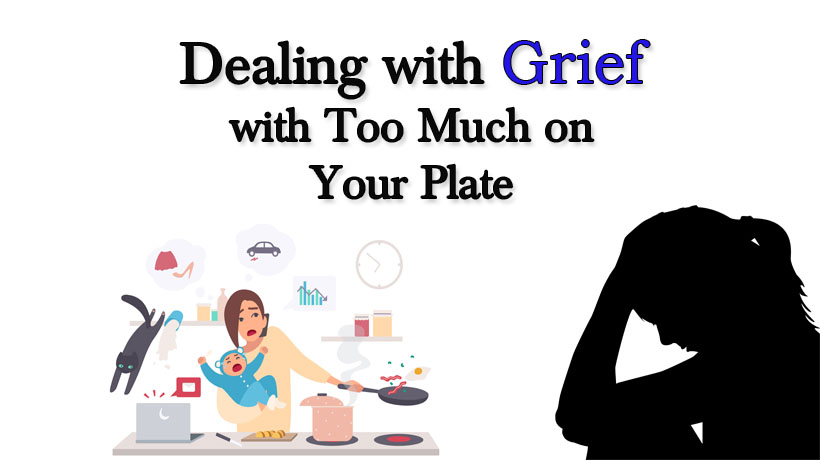For women who juggle work, family, and other responsibilities, managing grief seems impossible for some of us to prioritize. When Sheryl Sandberg, chief operating officer of Facebook, lost her husband while vacationing in Mexico in 2015, she returned to her high-profile job 10 days after her husband’s death. This was her choice, but everyone struggles with their own way of trying to balance the need to grieve with workplace responsibilities and demands. How can you deal with the experience of a sudden, unexpected loss of a loved one when you have so many responsibilities?
Everyone responds differently to a sudden tragedy. The circumstances of a loss can affect your decision about how much time you need to grieve and when to return to work. It is challenging to make decisions about taking time off work while dealing with the waves of pain following the sudden death of a loved one. Here are some strategies for getting through such an emotional time the best way possible
Don’t isolate. Be among others you trust.
As Megan Divine says in her book, It’s OK That You’re Not OK, “what we all want most is to help each other in our moments of need, to feel loved and supported no matter what horrors erupt in our lives. This means loving ourselves in the midst of great pain. The loss really is as bad as you think. What has happened can’t be made right, and the loss cannot be restored.”
Some people try to grieve alone because they don’t want others to see them when they’re emotional or because that’s what they’ve learned from their families. But we shouldn’t go it alone during such a difficult time. You might choose a circle of friends, a significant other, siblings or a support group you belong to. Acknowledgment is everything.
It’s okay not to be okay, and okay to say that you’re not okay. Your feelings and emotions are valid.
Some people are reluctant to openly show their emotions and try to project an image of stoicism no matter how they’re feeling. But shedding tears in the wake of a tragedy is natural and healthy. The easiest way to move forward is to push through. Feel your emotions and let them run their course. It’s okay to want to cry, to be angry, to feel negative emotions. Stuffing feelings and tears can lead to depression, isolation, overeating, acting out angrily or other reactive behaviors. You don’t need to move on from your grief, but someone to see your pain, acknowledge it and hold your hands. Make time for this a priority rather than avoiding it by taking on all the responsibilities you had before the loss.
Take advantage of available resources.
Many large and medium-sized companies have employee assistance programs that typically include several free counseling sessions for employees dealing with difficult issues. Whatever the size of the company you work for, it’s worth exploring whether it offers such benefits. Talking with an Employee Assistance Program (EAP) counselor would be the appropriate time to bring up issues around returning to the workplace after time off to grieve. It’s an excellent place to talk about how you’re doing at the workplace and how to best approach the many responsibilities on your plate.
Be mindful that you may not be at your best for quite a while, and give yourself room for self-care.
In your grief, you may experience an array of symptoms, including feelings of depression, disruptions in sleeping and eating habits, fatigue and difficulty concentrating. If you’re experiencing these kinds of symptoms when you return to work, talk to your EAP counselor or boss, so they understand and can support you with your workload. For example, your boss might help by devising a temporary revised work schedule. Give yourself room for self-care.
Be your own best friend.
As you face all the responsibilities and intentions you have during this holiday period, be kind and gentle with yourself and give yourself a break. Imagine you are with your best friend and she suffered a loss. What would you say to her during this time of grieving?
It’s important to keep up with the basics of self-care, such as sleeping, exercising, eating well and meditating. Your job, bills, family, friendships, and relationships all come with their own complexities. Juggling all of these responsibilities takes a lot of physical and emotional energy. Be vulnerable and admit that you are not okay. You don’t need to project every appearance of being the opposite. If others are saying things to you that you find offensive or disturbing, create distance from them. Work and activities can be soothing, but don’t drown yourself in your responsibilities. Take the time you need to rest, recharge, and breathe. You know yourself better than anyone.
Sources:
https://www.amazon.com/dp/1622039076/ref=rdr_ext_tmb
https://health.usnews.com/wellness/articles/2017-05-03/how-to-balance-work-demands-while-grieving-a-sudden-death



